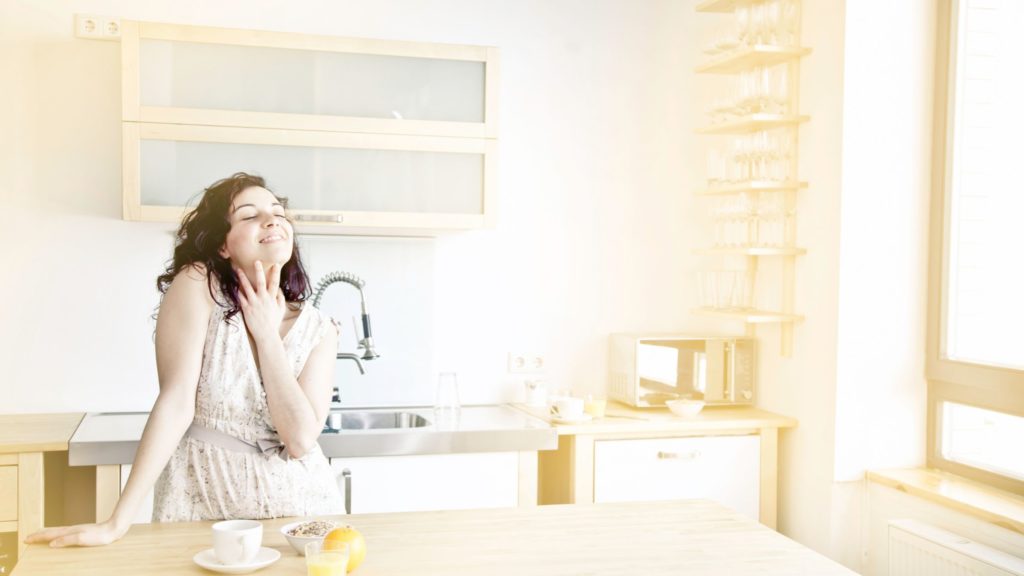In today’s consumer-driven society, we often find ourselves surrounded by an overwhelming amount of things. From endless decorations to countless knick-knacks, our living spaces can sometimes feel cluttered and suffocating. Enter minimalism: a design philosophy that celebrates simplicity, functionality, and mindfulness. This article delves into the art of decorating with less and explores how such a design approach can lead to a significant positive impact on our well-being.
The Essence of Minimalism
At its core, minimalism is about appreciating the value of less. It’s not necessarily about having fewer things, but rather about being intentional with what you choose to surround yourself with. In terms of home decor, this means opting for designs that are clean, simplistic, and purposeful. Think neutral color palettes, streamlined furniture, and clutter-free surfaces.
However, minimalism isn’t just about aesthetics. It’s also a reflection of our values and priorities. By choosing to live with less, we make a conscious decision to focus on what truly matters, whether that’s spending quality time with loved ones, pursuing passions, or simply enjoying the peace of a serene environment.
The Psychological Impact of Clutter
To understand the benefits of minimalist design, one must first acknowledge the psychological toll of clutter. A cluttered space can lead to feelings of anxiety, restlessness, and overwhelm. When our environments are chaotic, our minds tend to mirror that disarray.
Research has shown that clutter can interfere with our ability to focus, process information, and even negatively impact our sleep. This happens because clutter competes for our attention and acts as a constant visual reminder of tasks that need to be completed.

Minimalism and Well-being: A Synergistic Relationship
Embracing minimalistic decor offers a direct counter to the stresses induced by clutter. Here are some ways in which it fosters well-being:
- Promotes Mental Clarity: Without excess items demanding our attention, we can focus better and think more clearly. This serenity often translates to better decision-making and a more profound sense of peace.
- Encourages Mindfulness: When we surround ourselves with items that hold genuine significance, we become more attuned to our surroundings and the present moment. This heightened awareness can enhance our daily experiences and deepen our appreciation for life’s simple pleasures.
- Boosts Productivity: In a decluttered space, distractions are minimized. This environment can enhance concentration and improve efficiency, whether you’re working, studying, or pursuing a hobby.
- Reduces Stress: A minimalist environment can act as a sanctuary from the outside world. The reduced sensory input allows our brains to relax, leading to reduced cortisol (the stress hormone) levels.
- Facilitates Better Sleep: Sleep quality can be adversely affected by cluttered and chaotic environments. A minimalist bedroom can be conducive to relaxation, making it easier to wind down and enjoy restful sleep.
Practical Steps to Embrace Minimalistic Decor
If the idea of minimalism appeals to you, here are some actionable steps to start your journey:
- Declutter: Begin by assessing each item in your space. If it doesn’t serve a functional purpose or bring you genuine joy, consider letting it go.
- Choose Neutral Colors: Opt for a neutral color palette. Whites, grays, beiges, and other muted tones can evoke feelings of calmness and spaciousness.
- Prioritize Quality Over Quantity: Instead of filling your home with many items, invest in fewer, high-quality pieces that will last and that you truly love.
- Incorporate Natural Elements: Nature has a calming effect on the human psyche. Consider adding indoor plants or natural wood elements to your decor.
- Maintain Regularly: Minimalism is not a one-time task. Regularly assess your space, declutter, and ensure that every item aligns with your minimalist vision.
Certainly! Here are two more categories to complement the article:
The Environmental and Financial Advantages of Minimalism
Reduced Consumption Means Less Waste: The minimalist approach doesn’t just benefit us personally. By purchasing only what we genuinely need and love, we can reduce the demand for mass production. Consequently, fewer resources are utilized, and less waste is generated. This conscious choice can contribute significantly to our global efforts towards sustainable living.
Financial Freedom and Flexibility: Adopting a minimalist lifestyle can also be lighter on our wallets. By prioritizing quality over quantity, we often find that we purchase less frequently, leading to long-term savings. Additionally, by reducing the need for bigger living spaces to accommodate countless belongings, our choices in housing can also become more flexible and potentially more economical.
The Social Implications of a Minimalist Lifestyle
Strengthened Personal Relationships: In a decluttered space, distractions are minimized, which can pave the way for more meaningful interactions. Whether it’s a heart-to-heart conversation in a serene living room or a family meal without the interference of excess, minimalism can foster deeper connections with loved ones.
Promoting Value-based Living: As we move away from materialism, we often find ourselves reevaluating what truly matters. This introspection can extend beyond our personal spaces and into our social interactions. Instead of placing value on material possessions, we can begin to appreciate experiences, knowledge, skills, and relationships more deeply. This shift can lead to richer, more fulfilling social interactions and a broader sense of community.
In Conclusion
Minimalism is more than just a design trend; it’s a lifestyle that emphasizes intentionality, clarity, and peace. By decorating with less, we create an environment that nurtures our mental, emotional, and even physical well-being. In a world where ‘more’ is often seen as ‘better,’ minimalism serves as a gentle reminder that sometimes, less truly is more.


